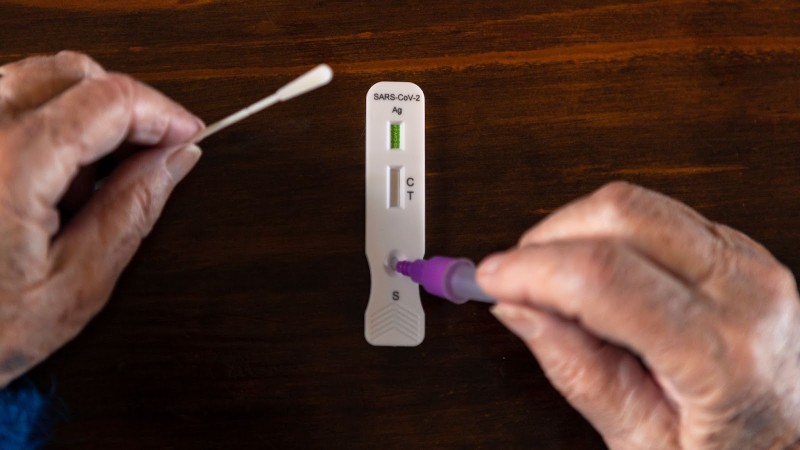Health
The Role of Testing in Pandemic Control: Lessons Learned from COVID-19 Reditus Laboratories

Testing is crucial in controlling the pandemic. With COVID-19, it’s become clear how important it is. It helps us identify people who have the virus. Then we can isolate and treat them, which stops them from spreading. Testing also provides data to help us manage the virus. Laboratories like Reditus Laboratories can help in testing COVID-19.
The importance of testing should be considered. Healthcare workers can use it to see how harmful the virus is in the community. This lets them decide how to use resources, trace contacts, and prevent infection. And it reveals asymptomatic carriers – people with the virus who don’t know it.
Testing is also used to evaluate vaccines and treatments. Researchers use tests to ensure they are safe and effective before being made available to the public.
Amazingly, a study in The Lancet Medical Journal found that increased testing capacity leads to fewer deaths from COVID-19. This shows us how crucial testing is for preserving lives and preventing the spread of infectious diseases.
The Importance of Testing in Pandemic Control
Testing is ultra-important for controlling pandemics. It can recognize and stop the spread of contagious illnesses like COVID-19. Through testing, we can identify infected individuals and take the necessary measures to isolate them, give them medical care, and trace their contacts. This helps keep the virus from continuing to spread.
Testing doesn’t just recognize those with symptoms but also those without them who could be unknowingly transmitting the virus. By testing symptomatic and asymptomatic people, health authorities can understand how widespread the virus is. Knowing this is key for deciding things like targeted quarantining, travel restrictions, or prioritizing vaccinations.
Testing offers valuable data for epidemiologists. Examining the testing patterns and results gives researchers insight into how the virus progresses, what high-risk areas or populations are, and how effective control measures are. This info directs public health policies and helps implement preventive procedures against future pandemics.
To increase testing efficiency, we can do several things. We can make it more accessible by setting up testing centers or mobile units so people don’t have to worry about logistics. We can also equip testing facilities with resources like test kits, laboratory equipment, and healthcare personnel so results are processed and reported quickly.
We should also set up contact tracing systems that use technologies like mobile apps to detect potential clusters and interrupt transmission chains. These systems must protect privacy while allowing effective communication between health authorities and those possibly exposed to the virus.
Educating the public about the importance of testing and its role in pandemic control is essential. Messages from experts like Reditus Laboratories can help people understand symptoms and encourage them to get tested if they think they’ve been exposed or have any signs of illness.
Testing is an essential part of pandemic control. Its role in recognizing and containing infectious diseases cannot be overstated. By using testing strategies and implementing the suggested measures, communities can reduce the impact of pandemics and defend public health.
Lessons Learned from COVID-19
The COVID-19 pandemic has taught us much. Testing is a significant part of controlling such health crises. It helps to identify and track the virus, allowing measures to be taken quickly.
We have learned the need for testing to be available widely. To detect cases early, testing large numbers of people quickly and accurately is essential. Early detection makes it easier to prevent the virus’ spread.
Additionally, we have seen the importance of regular testing in high-risk populations. These are people like healthcare workers and older people, and those with medical conditions. Through testing, we can swiftly spot any outbreaks and take action.
COVID-19 has also shown us the need to improve testing technologies and strategies. As new virus variants emerge, testing methods need to be adapted. This helps to stay ahead in efforts to contain potential outbreaks.
The WHO report shows the success of rapid antigen tests. They provide quick results and help to identify infected individuals quickly, decreasing transmission risks.
The Role of Medical Expertise in Testing
Medical experts are essential in testing during a pandemic. They have specialized training to conduct accurate and dependable tests to spot infectious diseases. Their expertise ensures tests are done well, minimizing the risk of false results.
In addition to testing, they interpret results with their knowledge and experience. They can see patterns and trends, which helps understand the spread of the disease and take control measures. Their expertise helps make informed decisions regarding patient management, contact tracing, and isolation protocols.
Medical experts also help develop and improve testing methods. Through research and collaboration, they contribute to advancing diagnostic tools and techniques. Their expertise evaluates the effectiveness of different testing strategies, resulting in evidence-based recommendations.
The response to the COVID-19 pandemic shows how essential medical expertise is for testing. Healthcare systems worldwide were overwhelmed, but medical experts were vital in developing and implementing testing protocols. Their knowledge guided governments and health organizations to create widespread testing programs that helped control the virus.
The Need for Continuous Testing and Adaptation
Testing and adjustment are vital for controlling COVID-19. Prompt identification of cases, tracking of transmission, and targeting measures help to keep the spread under control. By adapting strategies according to new data, informed decisions can be made. Widespread testing and agile responses must be prioritized for effective pandemic control.
Regular surveillance through testing serves as an early warning system. It identifies hotspots or clusters, allowing swift interventions. Officials can also use test results to tailor public health measures for specific communities or regions.
Testing also measures the effectiveness of preventive measures like vaccination campaigns and social distancing guidelines. Experts can evaluate the impact of these interventions on infection rates. This information guides decision-making processes related to containment measures.
-

 Sports4 weeks ago
Sports4 weeks agoAl Ahly vs Inter Miami, 2025 FIFA Club World Cup – Preview, Prediction, Predicted Lineups and How to Watch
-
Health3 weeks ago
Back to Roots: Ayurveda Offers Natural Cure for Common Hair Woes
-

 Tech3 weeks ago
Tech3 weeks agoFrom Soil to Silicon: The Rise of Agriculture AI and Drone Innovations in 2025
-

 Startup4 weeks ago
Startup4 weeks agoHow Instagram Is Driving Global Social Media Marketing Trends
-

 Science5 days ago
Science5 days agoJuly Full Moon 2025: Everything You Should Need to Know, When and Where to See Buck Moon
-

 Sports3 weeks ago
Sports3 weeks agoFIBA 3×3 World Cup 2025: Full Schedule, Preview, and How to Watch
-

 Gadget3 weeks ago
Gadget3 weeks agoThings to Know about Samsung Galaxy S26: What’s New and What’s Next
-

 Sports4 weeks ago
Sports4 weeks agoWorld Judo Championships 2025: Full Schedule, Date, Time, Key Athletes and How to Watch





















